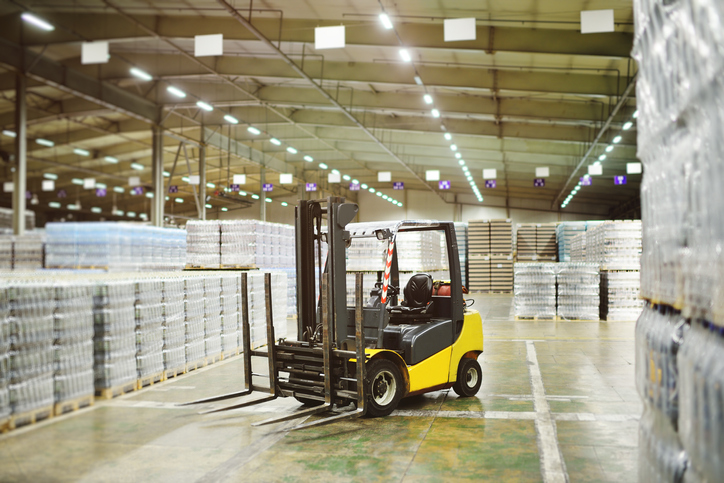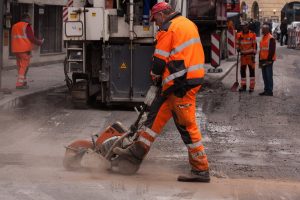Are Injured Warehouse Workers Eligible for Workers’ Comp Benefits?
Warehouse accidents can cause severe and debilitating work injuries.
Warehouse workers often sustain serious injuries on the job. When they do, they are usually eligible to receive workers’ compensation benefits.
In some cases, injured warehouse workers can receive additional financial compensation that’s not covered by workers’ comp, such as compensation for pain and suffering.
Talking to an experienced workers’ compensation attorney about your legal rights and options is key. Below, you can find the answers to common questions about warehouse accidents and the potential benefits available to injured warehouse workers.
Injuries are common among warehouse workers.
Warehouse workers sustain far more work-related injuries than many other professions. On average, employees who work in the warehouse and storage industry have an injury rate of 4.8 per 100 workers, according to work-related injury statistics compiled by the Bureau of Labor Statistics (BLS) as reported by Safety + Health Magazine.
To put such numbers in perspective, 2.7 workers per 100 workers on average get hurt at work in all other private industries combined, according to BLS data cited by Safety + Health Magazine. Based on such statistics, warehouse injuries are 77 percent higher than work-related injuries in other industries.
What are common causes of warehouse worker injuries?
Certain types of accidents are more common than others among warehouse workers. Some of the most common and most serious warehouse accidents include:
- Slip and fall accidents, especially in cases involving concussions and other head injuries.
- Forklift accidents, including being hit by a forklift or getting hurt when a forklift overturns.
- Packaging machinery accidents, especially if a worker’s hands get caught in the machinery.
- Pallet truck accidents, especially if workers are trapped in or underneath such machinery.
- Falls from a height, especially when warehouse workers fall off a ladder or fall to a lower level.
- Being struck by a falling object is especially common in warehouses since there are so many boxes being moved around a warehouse at all times.
- Exposure to harmful or dangerous substances, including hazardous chemicals.
Are injured warehouse workers eligible for workers’ comp benefits?
In most cases, injured warehouse workers are eligible for workers’ compensation benefits. However, workers’ compensation laws vary from state to state. For example, in Massachusetts, “All employers operating in Massachusetts are required to carry workers’ compensation insurance for their employees and themselves if they are an employee of their company,” according to the Commonwealth of Massachusetts’ website.
Rhode Island has similar rules. State law “requires employers with one or more employees to provide workers’ compensation insurance,” according to the State of Rhode Island Department of Labor and Training website.
Can injured warehouse workers obtain additional compensation?
The answer to this seemingly-simple question varies depending on the circumstances of your warehouse accident. In many cases, injured warehouse workers are only eligible to receive workers’ compensation benefits. However, there are certain situations when injured workers may be able to receive additional financial compensation.
Situations in which injured warehouse workers may be able to receive additional money for their injury-related expenses may include:
- Injuries that are caused by someone working for a different company in the same warehouse, in which case the injured worker may be able to file a third-party lawsuit.
- Injuries that are caused by hazardous situations at work that the company knew about but did not address in a reasonable amount of time or that the company simply ignored.
Can injured warehouse workers sue their employer?
Here again, the answer to this question varies depending on your work injury circumstances. In many cases, injured workers cannot sue their employer for injuries sustained at work. However, the best way to know if you or a loved one can file a lawsuit against your employer for a warehouse injury is to talk to an experienced work injury lawyer as soon as possible.
Why you need a workers’ compensation attorney
Obtaining workers’ compensation benefits can be a very complicated process. If you make a mistake, you might have to wait a long time to get benefits, or your initial application for benefits might get denied.
At the Law Offices of Deborah G. Kohl, we have extensive experience helping people in Rhode Island and Massachusetts get the benefits they deserve. As a result, we know how the system works in both states and can help you find your way forward.
Discover what we can do for you. Contact us and schedule a free case evaluation to see how a workers’ compensation attorney can help you. We have three offices conveniently located in Rhode Island and Massachusetts and handle workplace injury claims in both states.


